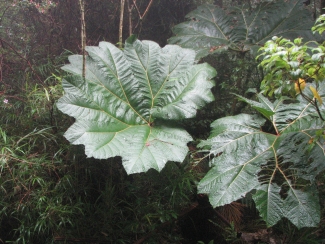FILTER
Displaying 261 - 270 of 307 publications
The main objective of thus study is to contribute to the design of policies dealing with the problems of congestion and air pollution in the urban context of a typical developing country. In this…
| Peer Reviewed | Central America and Mexico, SwedenThis thesis consists of five papers dealing with fairly heterogeneous issues, based on the problems or topics analyzed, but also based on the methodologies used to approach them. The overriding…
| Thesis PHD | Central America and Mexico, SwedenThe private demand for a hypothetical vaccine that would provide lifetime protection against HIV/AIDS to an uninfected adult was measured in Guadalajara, Mexico, using the concept of willingness to…
| Peer Reviewed | Central America and MexicoThis article estimates the impact of completed higher education on economic prosperity across Indian districts. To address the endogeneity of higher education, we use the location of Catholic…
| Peer Reviewed | IndiaDespite the Solid Waste Management Rules (SWM), 2016 stating that waste generators should segregate their waste before it is collected; most households in Delhi continue to be non-compliant. We…
| Peer Reviewed | IndiaThis special issue on gender comprises articles from four different country settings: Sierra Leone, Senegal, Bangladesh, and Albania. Each uses large secondary data sets to explore how changing market…
| Peer Reviewed | IndiaIn the remote Himalayan districts of Pithoragarh, India and Baitadi, Nepal, households are dependent on agriculture and forests for their livelihood. In this paper, we examine poverty–forest linkages…
| Book Chapter | IndiaAbstract: We compare of the performance of emission taxes between Colombia and Sweden in an experimental setting where subjects are regulated through environmental taxes and had to decide on emission…
| Discussion Paper | Central America and Mexico, SwedenAbstract: In this paper, we conduct a high stake experiment in rural China to investigate the determinants of individual and joint decisions regarding intertemporal choices, and estimate the relative…
| Discussion Paper | China, SwedenAbstract: We examine whether and to what extent joint choices are more or less patient and time - consistent than individual choices in households. We use data from an artefactual field experiment…
| Discussion Paper | China, Sweden